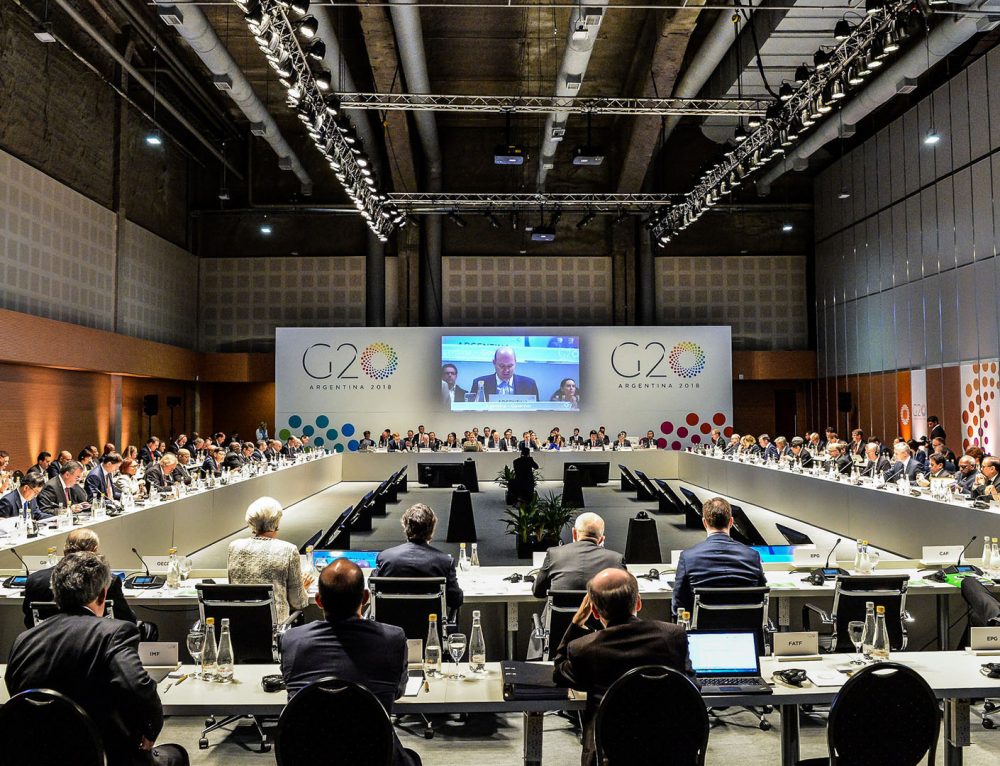G20 leaders have been criticized for a slow response to the COVID-19 crisis, now they have vowed to restore confidence at the end of an unprecedented, 90-minute video conference.
During a video conference not open to the media to observe, leaders of the world’s major economies came together to discuss the impact of the coronavirus crisis, saying they are committed to working together to restore confidence, preserve financial stability, and revive growth. The unusual video call comes as governments around the world stress the importance of social distancing to curb the spread of the highly infectious virus. The virtual summit included leaders from the World Health Organization, the United Nations, World Bank, International Monetary Fund, International Labor Organization, as well as Russian President Vladimir Putin, German Chancellor Angela Merkel from her apartment in Berlin, and Chinese President Xi Jinping, among others.
Specifically, the leaders said today that they were eager to strengthen global financial safety nets, calling for more private sector coordination and insisting “we will overcome this” together. Key among their concerns, they said, was resolving disruptions to global supply chains and getting finance ministers and central bank governors to coordinate regularly both with each other and international organizations to develop an action plan. Saudi Arabia, which is presiding over the G20 this year, ABC News adds, opened the meeting with an urgent appeal by King Salman for the world’s most powerful nations to finance the research and development of a vaccine for the virus, which causes an illness known as COVID-19, and to ensure the availability of vital medical supplies and equipment. “This human crisis requires a global response. The world counts on us to come together and cooperate in order to face this challenge,” the Saudi monarch said.
The joint statement shared after the unprecedented, 90-minute video call reads:
“We are injecting over US$5 trillion into the global economy, as part of targeted fiscal policy, economic measures, and guarantee schemes to counteract the social, economic and financial impacts of the pandemic.”
They also pledged to work swiftly with multilateral bodies, such as the IMF, the World Health Organization, and regional banks to create a “robust” financial package to support developing nations. The outbreak that has thus far infected more than 480,000 people and killed more than 22,000 worldwide.












